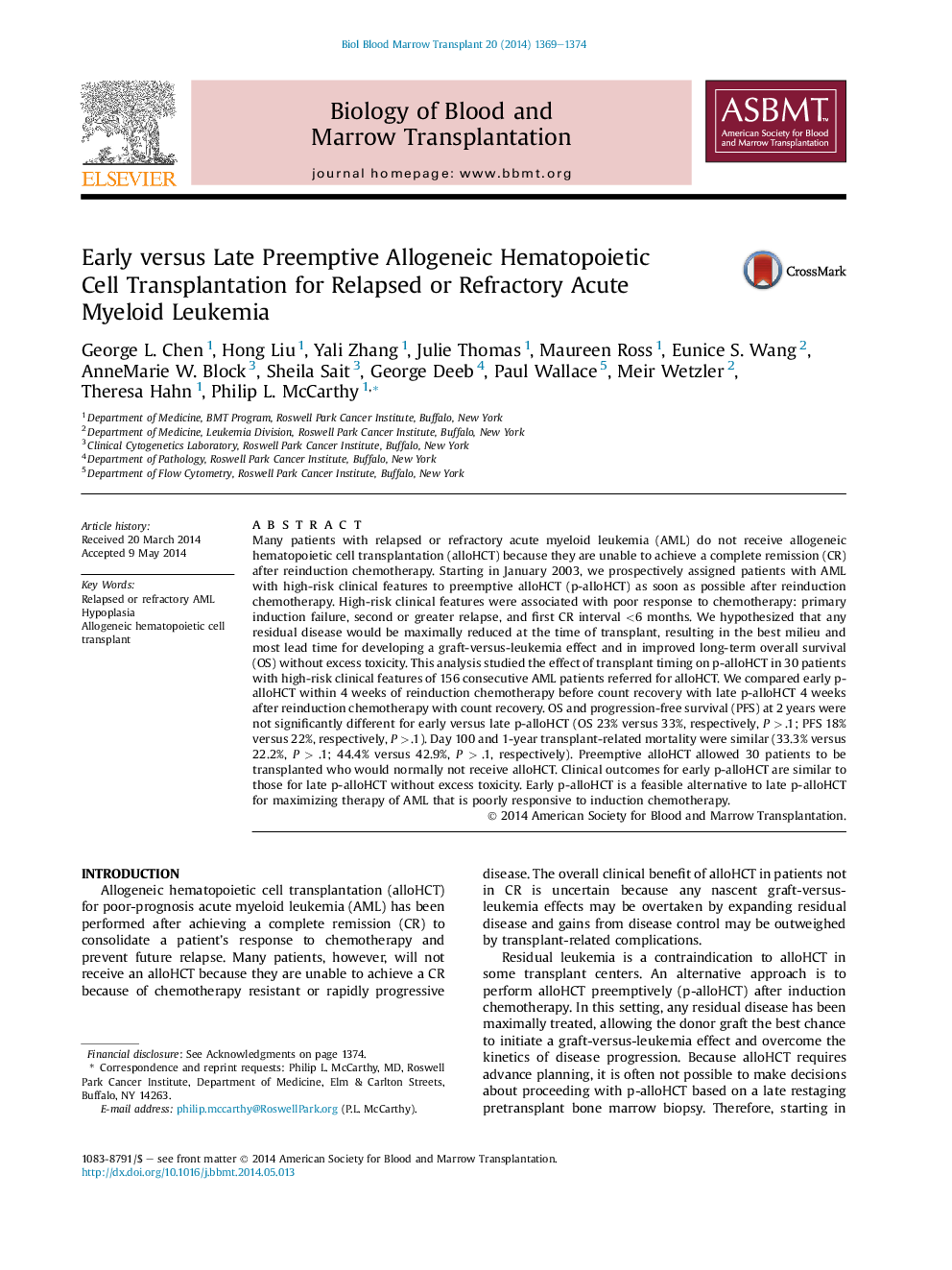| کد مقاله | کد نشریه | سال انتشار | مقاله انگلیسی | نسخه تمام متن |
|---|---|---|---|---|
| 2101909 | 1546276 | 2014 | 6 صفحه PDF | دانلود رایگان |
Many patients with relapsed or refractory acute myeloid leukemia (AML) do not receive allogeneic hematopoietic cell transplantation (alloHCT) because they are unable to achieve a complete remission (CR) after reinduction chemotherapy. Starting in January 2003, we prospectively assigned patients with AML with high-risk clinical features to preemptive alloHCT (p-alloHCT) as soon as possible after reinduction chemotherapy. High-risk clinical features were associated with poor response to chemotherapy: primary induction failure, second or greater relapse, and first CR interval <6 months. We hypothesized that any residual disease would be maximally reduced at the time of transplant, resulting in the best milieu and most lead time for developing a graft-versus-leukemia effect and in improved long-term overall survival (OS) without excess toxicity. This analysis studied the effect of transplant timing on p-alloHCT in 30 patients with high-risk clinical features of 156 consecutive AML patients referred for alloHCT. We compared early p-alloHCT within 4 weeks of reinduction chemotherapy before count recovery with late p-alloHCT 4 weeks after reinduction chemotherapy with count recovery. OS and progression-free survival (PFS) at 2 years were not significantly different for early versus late p-alloHCT (OS 23% versus 33%, respectively, P > .1; PFS 18% versus 22%, respectively, P > .1). Day 100 and 1-year transplant-related mortality were similar (33.3% versus 22.2%, P > .1; 44.4% versus 42.9%, P > .1, respectively). Preemptive alloHCT allowed 30 patients to be transplanted who would normally not receive alloHCT. Clinical outcomes for early p-alloHCT are similar to those for late p-alloHCT without excess toxicity. Early p-alloHCT is a feasible alternative to late p-alloHCT for maximizing therapy of AML that is poorly responsive to induction chemotherapy.
Journal: - Volume 20, Issue 9, September 2014, Pages 1369–1374
